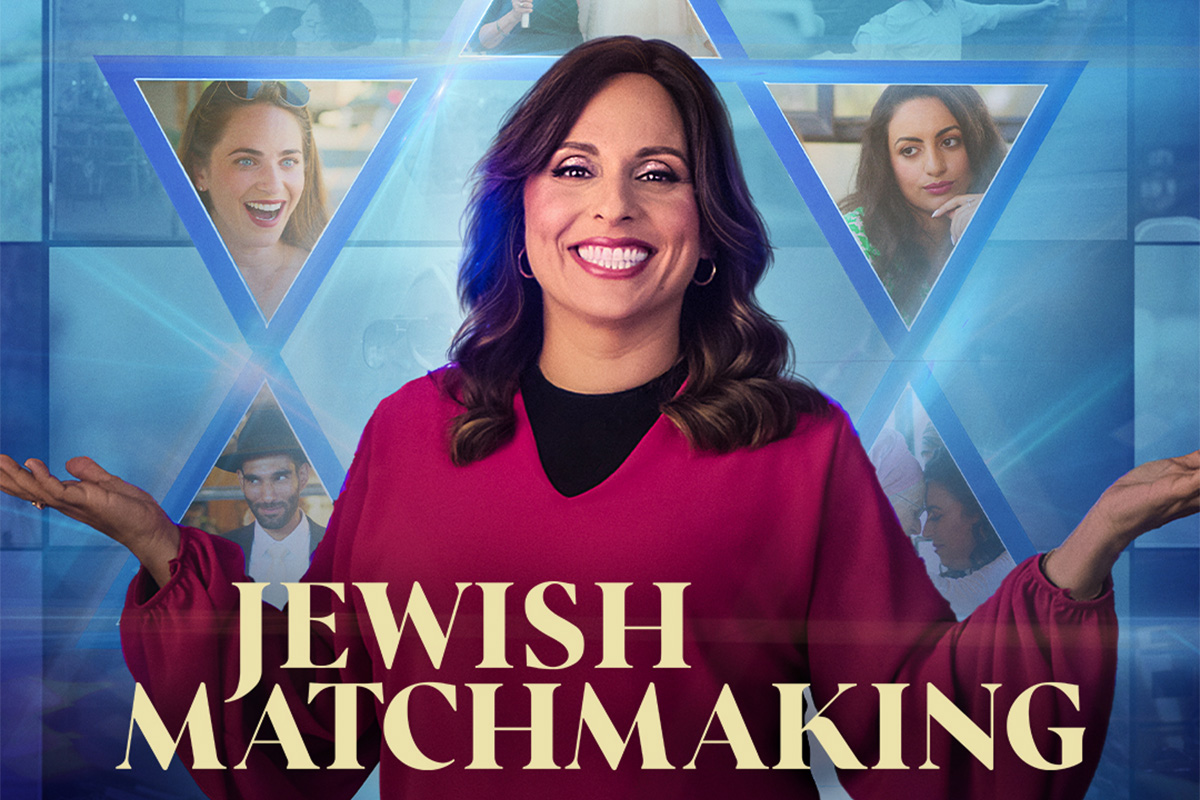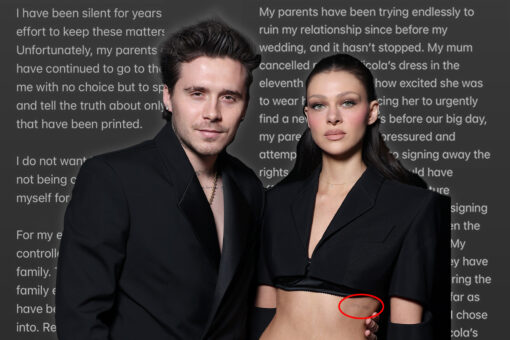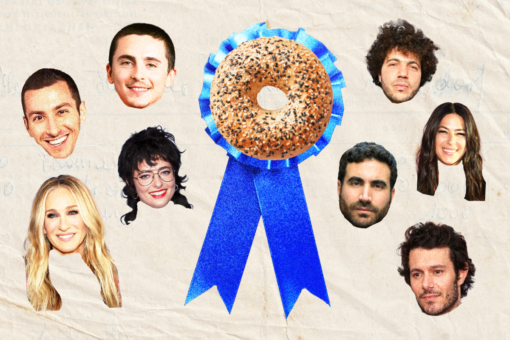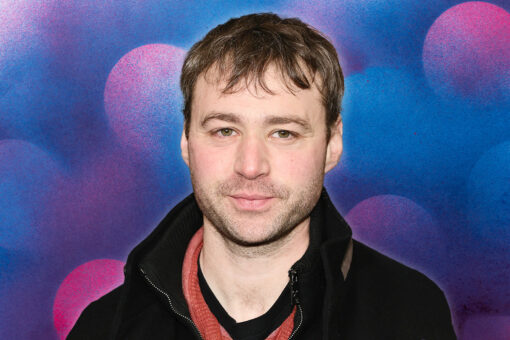You could say it was love at first sight for Netflix’s new dating show “Jewish Matchmaking” and me. About five minutes into the first episode, Jewish matchmaker Aleeza Ben Shalom won my heart. When 27 year-old Dani, a client from Miami, described herself as being “less Jewish than her family,” Aleeza gently corrected her: “Less observant,” the matchmaker said with chutzpah. “If you’re Jewish, you’re Jewish!”
From that affirming moment on, I was hooked — and the rest of the season only got better from there.
Debuting on Netflix today, “Jewish Matchmaking” (or, as it’s called in Hebrew, “Modern Shidduch”) follows Aleeza as she meets and matches Jewish singles from Jerusalem to Jackson Hole, Wyoming. Unlike other popular reality TV dating franchises like “The Bachelor,” Aleeza’s clientele is made up of people with a wide variety of Jewish identities who are actually looking for marriage. (Though, like “The Bachelor,” “Jewish Matchmaking” has thus far only worked with straight couples.) The fun cast of vivacious Jewish personalities includes Nakysha, a 25 year-old motorcycle lover who wants to get married and get out of Kansas; Fay, a devout, yet open-minded Orthodox entrepreneur who’s familiar with the shidduch process; and Ori, a mama’s boy who’s looking for a blonde-haired, blue-eyed Israeli woman. Aleeza anchors the show with her loveable wit, ever-positive attitude and insight on Jewish practice and customs.
Aleeza sat down with Hey Alma to talk about how she was matched with “Jewish Matchmaking,” the electric chemistry between some of her clients and what she would want out of a season two.
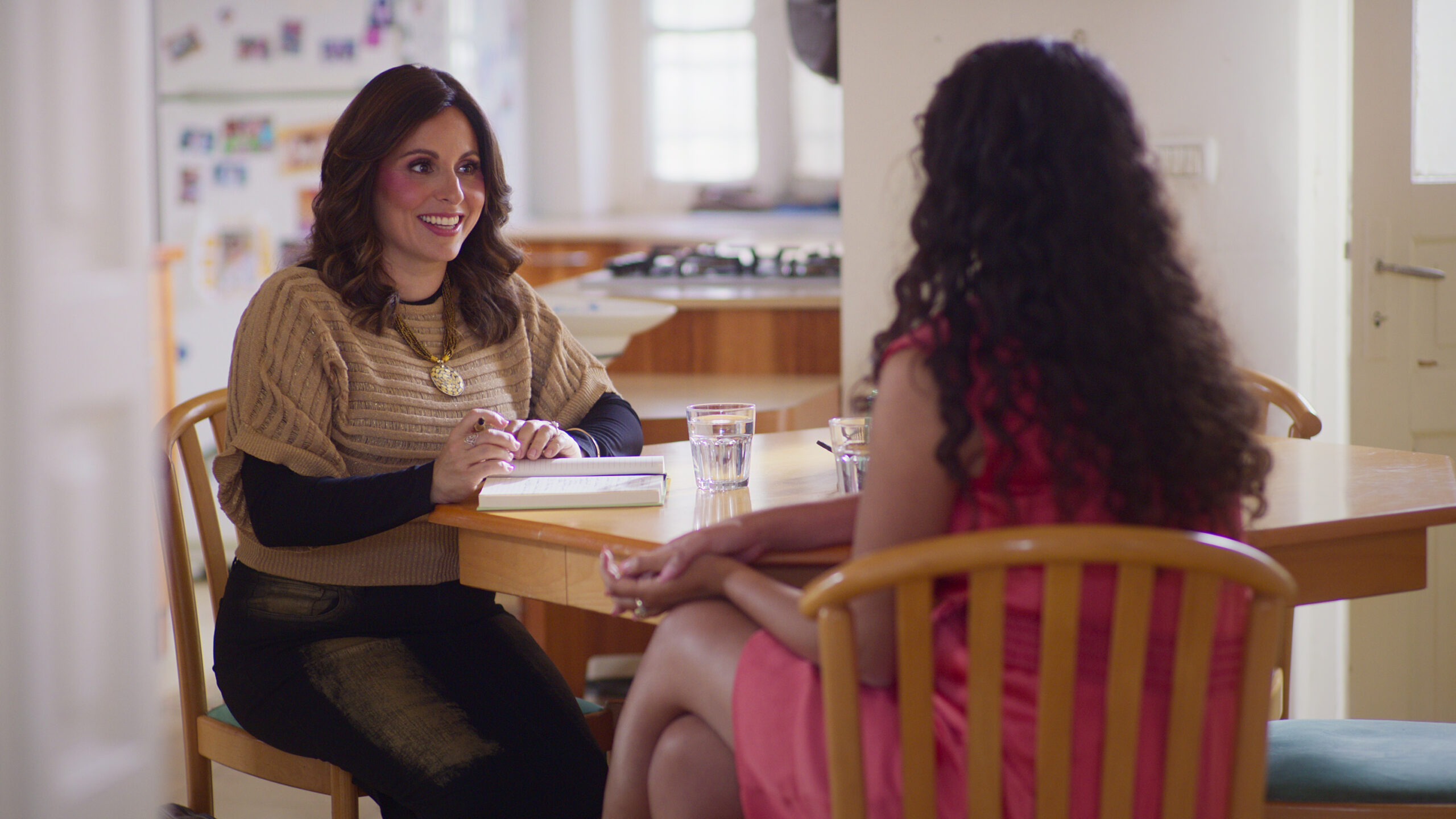
This interview has been lightly edited and condensed for clarity.
Could you tell me about how you became a part of “Jewish Matchmaking”?
It’s a funny thing, because it’s a matchmaking story. I work with and train matchmakers and dating coaches around the globe. One of my matchmakers was interviewed for the show, and she called me and said, “Aleeza, I don’t want to be on a show. But you and I, we’ve been running webinars, we’ve been doing things for matchmakers and for singles. We’ve been doing things together during COVID and you’re great on camera. You should do this!” So it was actually a match that was made by a matchmaker.
That’s incredible! How much control did you have in the process of choosing your clients for the show?
I think ultimately, with any show, [the production team] has the final say. But they gave me an opportunity to give input about some of the people that they were looking to work with. And I told them, “Look, I want real people. I want marriage-minded singles. I want people who are able to make a meaningful connection and are really looking for love.” I’m not here to just set up dates. This isn’t about dating, right? This is matchmaking for love and marriage. So I worked with them to help give some input on that, and they were really wonderful about it.
And I loved that your clients on the show aren’t just Ashkenazi. There are also Sephardic and Mizrahi Jews and Jews of color…
And they are different ages, from 24 to 44, and from all backgrounds and many different locations across the world. It was really an incredible group of people that they chose. Judaism-wise, there was a wide spectrum, which, by the way, represents my normal clientele. I don’t just work with just observant Jews or just work with secular Jews. Exactly what you saw is my clientele: all ages, all stages, all backgrounds, all locations.
I thought the educational aspect was really interesting, too. Whose idea was it to explain Jewish concepts like shomer negiah or Ashkenazi vs. Sephardic on the show?
I work not just as a matchmaker, I work as a dating coach as well. So to me, the process of matchmaking involves both of those things. I always incorporate [educational aspects] because I can’t just set you up and hope for the best. I actually have to set you up and give you the tools so that you can succeed. What you saw was my natural process. [The production team] said to me, “OK, you’re gonna have a meeting with so-and-so.” I said, “Great, what do you want me to do?” And they said, “Whatever you normally do.” So I came in with my real process, my real interview. I always give tools and wisdom and insights and ideas and concepts, because I want to expand people’s thinking and I want to help them to shift — not to be different than who they are, they should be who they are, but to have more information and wisdom about the process so they can handle it in whatever way they choose.
I guess the short answer is that this is me, it’s part of my process. We talked about shomer negiah, we talked about “date ’em til you hate ’em,” my famous line which means just keep going until it’s really a confirmed no. We’re never hating anybody, that’s playful Aleeza language — “when in doubt, go out,” “analysis paralysis.” All of these things are a part of the process.
I love seeing that shift in clients, like when Ori has the realization that maybe looks aren’t everything.
And what do you bring to the table? We’re going to bring somebody to the table for you. But the question is, who are you and how are you contributing to and participating in this potential relationship? Because it’s not a relationship yet. All I put in front of people is potential. They have to then pick up the pieces and run with it.
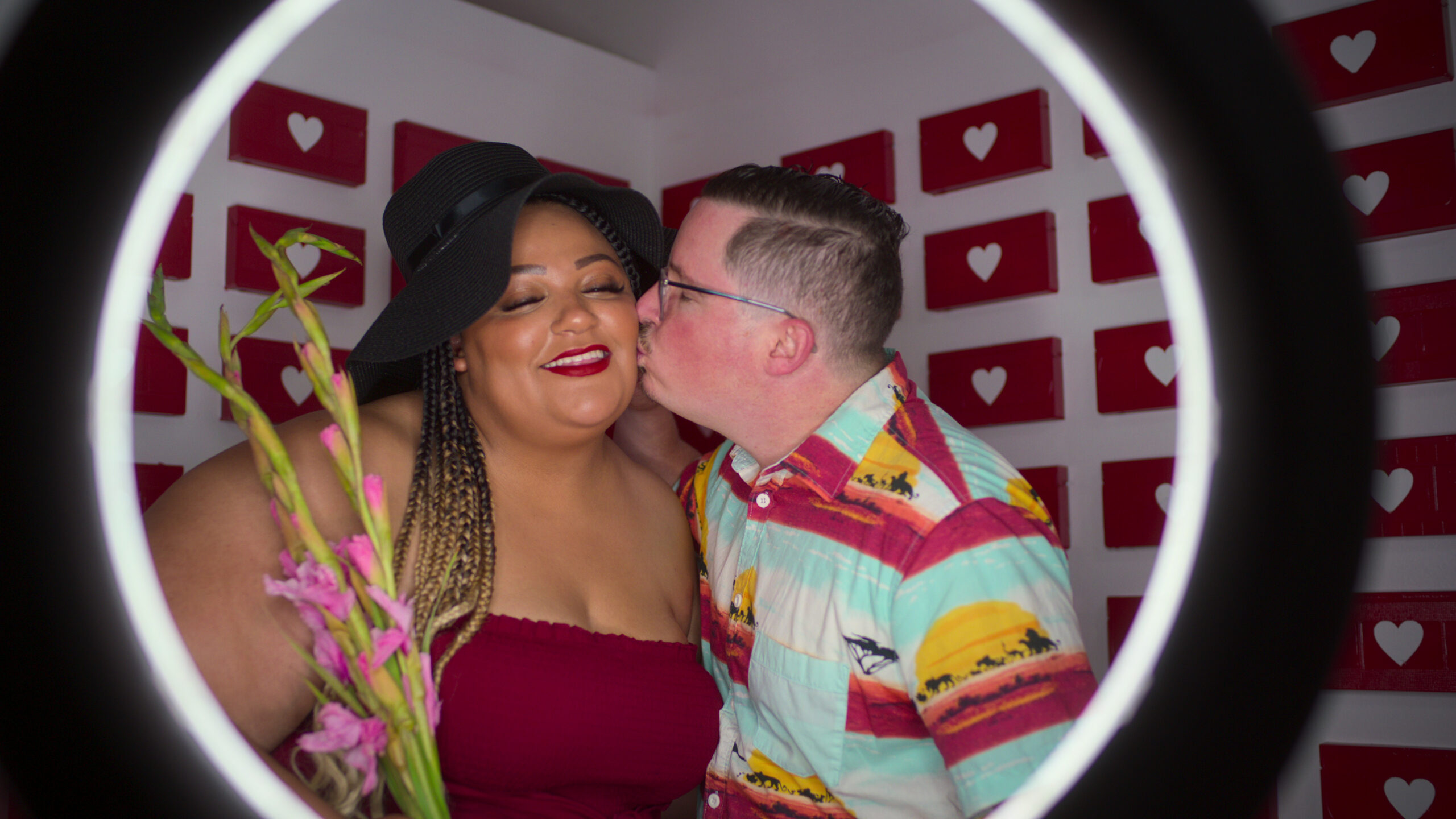
Outside of the show, how did you initially get into matchmaking and being a dating coach?
I always had a feel for it. I was always watching relationships — I’m one of those people-watchers. My parents had a long-term marriage — my mom passed away — but they were married for over 40 years. My in-laws have been married for over 60 years. They’re actually in the show! They’re the ones that have been married the longest, if you recall the little snippets with the cute couples on the couches. So, anyway, I always saw beautiful marriages, beautiful relationships, and that’s what I desired in life. I wanted to grow up, get married and build a family. That was my top priority, and I chased that dream. And then when I got it, I was like, “Oh, this is great. I want to help other people do this, too.”
So I started out as a matchmaker on Saw You At Sinai, which is an online database. But I was like, “Oh, I need this to be a little more personal.” So I’d call people: “How are you? I have a match!” And they’re like, “I have a match? Send it over!” And I was like, “I don’t know if it’s a good match. I just have a match. I don’t know you.” And they’d be like, “You want to know me?” So they would tell me everything about them, and then they’d be like, “Can I call you if I have questions?” So I kind of dabbled in matchmaking and started doing unofficial dating coaching. And then, with the recession in 2008, everything took a nosedive. My husband’s business is in the housing industry, and he was like, “I need you to get a job.” And I was like, “Oh, I have a job. I’m a matchmaker.” And he’s like, “OK, how much does it pay?” And I was like, “No, it’s like mitzvah matchmaking. It doesn’t exactly work like that.” So he goes, “OK, I don’t care what you do. Just get paid. Build yourself a business! Go for it! Make yourself happy!” I was like, “There’s nothing else in the world I want to do. I just want to do this.” He goes, “Great. So do it and do it professionally.”
For me, it was a perfect match. It just hit — I did coaching, I did matchmaking and then I started training matchmakers and coaches. Now, I have an international team with people all around the world, and I’m working virtually, too. So don’t ask me when I sleep.
Have you seen the show? What did you think?
I am so happy. I’m really pleased. I feel fully represented. When you watch the show — that’s really me. I’m not an actress. That’s really how I work. You’re seeing snippets of it, you’re seeing small bites, but in general, in terms of the process and how I work with people and my personality and who I am, I feel fully represented in a really beautiful way. And I am extremely grateful to Netflix and to IPC, the production company, for everything that they put together. I feel very, very happy.
Not to play favorites, but do you have a favorite client from the show? Or at least a client that stands out to you from the show?
I don’t have favorites. In terms of who surprised me the most, I would say it was Noah Del Monte from Tel Aviv. I expected to meet a 24-year-old Tel Aviv party guy, and I walked in and he’s mature. He’s articulate, so well-spoken, he’s refined, he’s fun, he’s playful. And I was just so impressed with somebody that was so young and yet so mature. The same is true of Dani from Miami — she’s 27, I believe.
People really were open to talking, to trying something new, trying something different. And doing it in a way that might be a shift for them, like Harmonie. Harmonie is so funny — she was so open during the conversation. She told me, “I broke every one of these rules. I just couldn’t do it.” I kind of give you the rules and then I let you pick what works for you. But I want to let you know that we could strive to do something different.
And I love that moment with Harmonie, where she’s like, “Maybe that’s why I’m still single!”
But that’s the thing about the show — it’s so authentic. And I felt like each and every person was growth-oriented, and that really impressed me.
Could you walk me through what was going through your head when a few of your male clients expressed preference for the (ahem) extremely common blonde-haired, blue-eyed Israeli women?
So, I ask people to be real with me, to be honest. Tell me what you’re looking for. I’m going to look for it! And then I sit with the idea a little bit, right? Then I see how flexible they are. You know, like, well, what if she has blonde hair and brown eyes? Or what if it’s brown hair and blue eyes? What about contacts and hair dye? What’s really a deal breaker for you? And where do you have a little bit of flexibility? And so it to me, it wasn’t a shocker. It gives me an opportunity to playfully dig in a little bit and see how far I can stretch a client so that I know their boundaries and so that they can learn their boundaries.
With Ori, for example, that was a hard line in the sand. Although the last person that we set him up with, Karin, she wasn’t blonde, but it was lighter-ish, right? But the eyes are blue, and chemistry-wise it was a great match. So I always tell people, I just want you to be real with me. But then I may push back. But if you know my personality, I do it playfully because you can get more stretch, right? It’s like the wind blowing on a tree. A tree can slowly move. But if a hard wind comes, it snaps. So I’m not a hard wind — I’m a very soft wind that comes to just see how much flexibility we have. I would rather tell him, “Look, I know what you’re looking for. I didn’t find it. Here’s what I found. But I haven’t found what you’re looking for. I’m going to keep looking.” It was a blessing that we found somebody that did fit Ori’s criteria, but we don’t always.
If a second season were to happen, is there anything you would want to do differently? For example, working with LGBTQ+ clients?
So in terms of casting, [the production team] has questions and I have my matchmaking questions. They have “reality” questions that I would love to have input on to get the data I really need so that we get to know people on a deeper level more quickly. I really loved having the production team that I worked with, they were amazing. And they gave me a lot of say to be like, let’s try this kind of a date or this person. Or, for Stuart, let’s do a styling session. They really let me give a lot of ideas and suggestions, and they were very receptive to my concepts. So I would love to have even more influence in that area, or be an assistant producer to help them do things like that.
In terms of LGBTQ Jews, just to be transparent, it’s not my area of expertise. I would want somebody to be the right fit [to make those matches]. I know what I know, and I know what I don’t know.
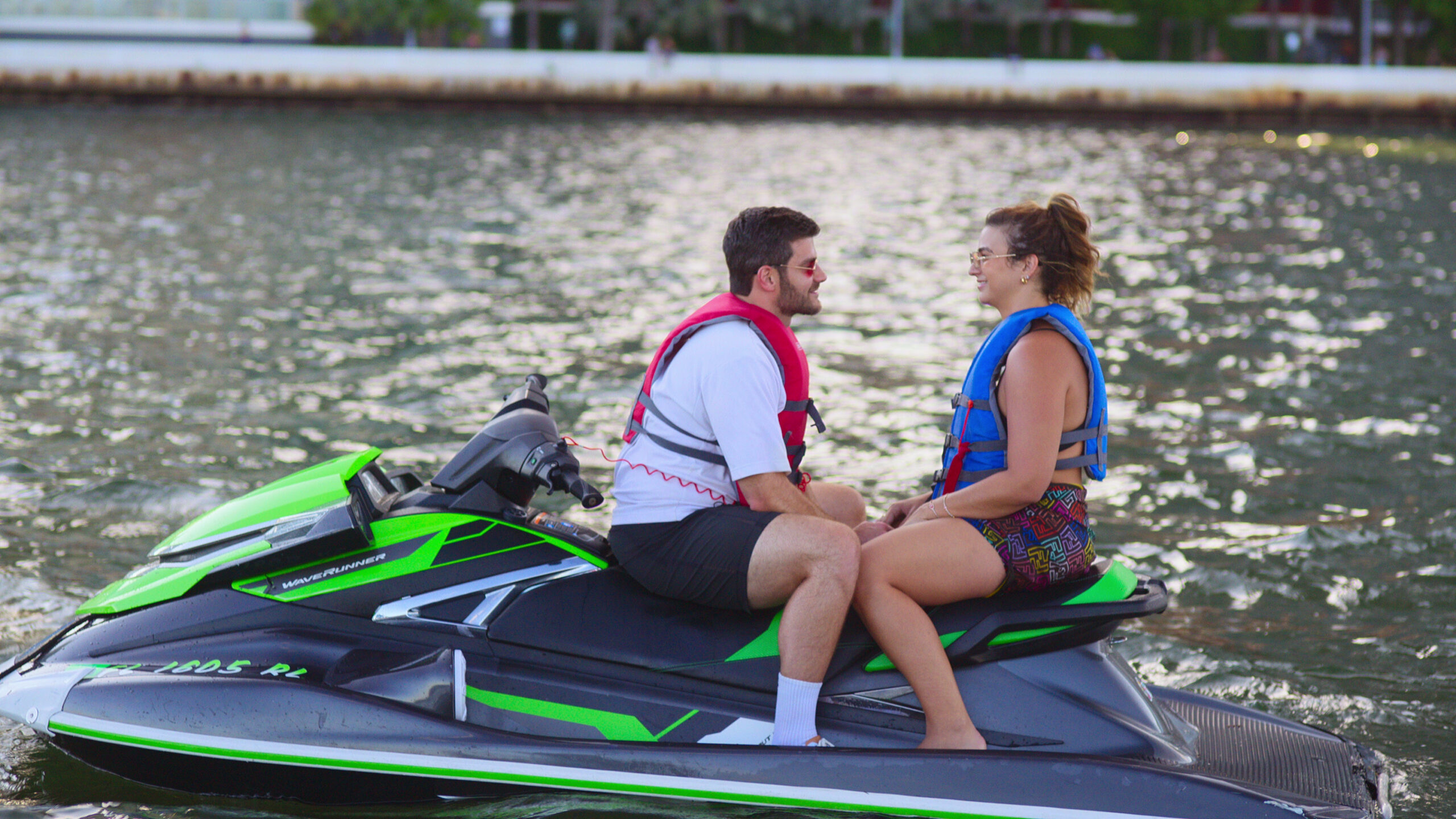
On the more personal side, a lot of shows have recently portrayed Orthodox Jewish women in the context of leaving Orthodoxy. What does it mean to you to be a proud Orthodox Jewish woman on Netflix?
I feel truly blessed to represent Orthodox Jewish women in a beautiful light. I know that this isn’t a documentary about Orthodox Jews, and I know that you can’t learn everything that you need to learn just from seeing one Orthodox Jew on a show. But I hope that I bring a new perspective and a different understanding, and that it piques people’s curiosity and encourages them to look into it more, learn a little bit more and see a different side [of Orthodoxy]. There are 15 million Jews, and there are about 15 million ways to be Jewish. And this is a great one! This is who I am. My husband and I have been married for over 20 years. We have five children, we made aaliyah two years ago with our kids and our dog, Koda the Kelev, and we are really very, very happy to be here. This opportunity was a tremendous blessing. I feel really grateful.
OK, one more question. What advice would you offer to Hey Alma readers who are looking for their bashert?
Besides my mantra, which is “date ’em until you hate them” — I want people to know that, whether you’re religious or secular or Jewish or not (it doesn’t matter), my understanding of the blueprint of creation is that we come into this world, our soulmate comes into this world, and then we just play this game of Where’s Waldo until we find them. The person who finds their person is the person that never stops looking. So if you haven’t found your person, keep looking, never give up. And if you need a vacation, you should take a vacation. Prescription by Dr. Aleeza! Go take a vacation and come back refreshed. But if you want to find your person, and you want to experience a love that is long-lasting and growth-oriented, never stop looking and never stop trying.
